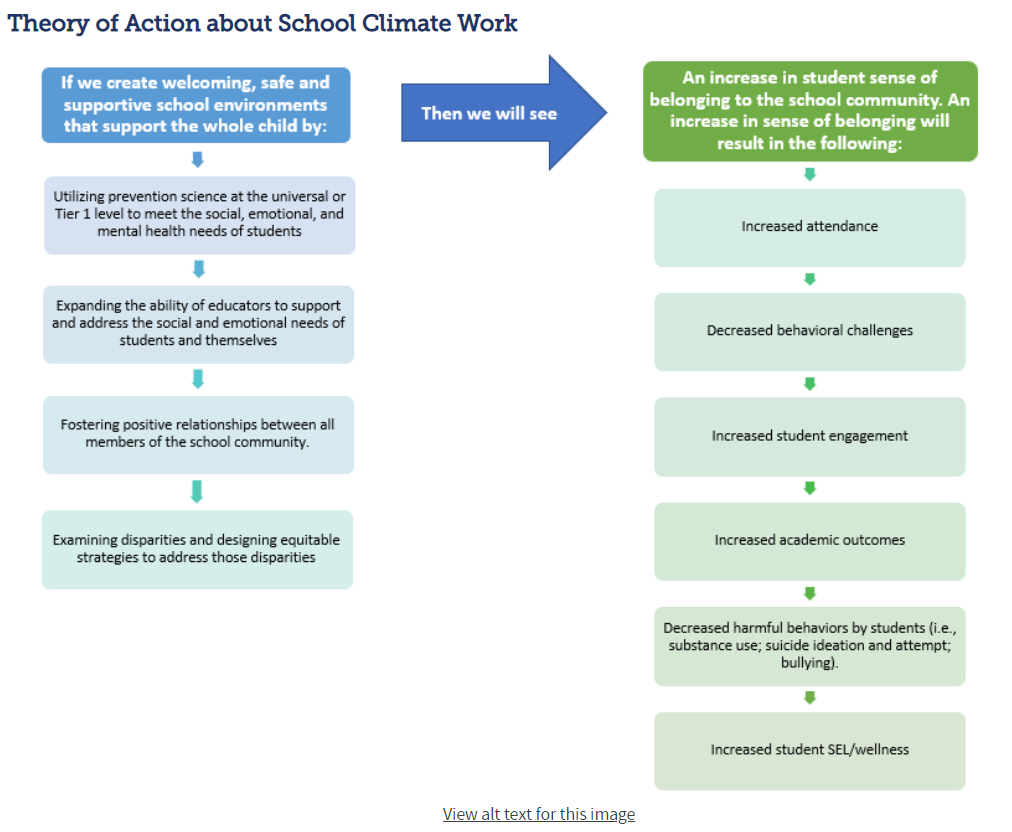Social-Emotional Needs and Support
A Nurturing Environment
Establishing a positive, nurturing environment is an essential first step. The importance of your school climate cannot be overstated. This is a graphic from CDE's school climate webpage enumerating some of the benefits, such as increased student engagement and decreased behavioral challenges, that come from a positive climate:

Active link for alt text for the image
Brene Brown in Dare to Lead" (2018) tells teachers that
we can't always ask our students to take off the armor at home, or even on their way to school, because their emotional and physical safety may require self-protection. But what we can do, and what we are ethically called to do, is create a space in our schools and classrooms where all students can walk in and, for that day or hour, take off the crushing weight of their armor, hang it on a rack, and open their heart to truly being seen....And what I know from the research is that we should never underestimate the benefit to a child of having a place to belong--even one--where they can take off their armor. it can and often does change the trajectory of their life (emphasis added, 13).
You can start this process by listening to the child, talking with them and their parents, and looking for ways to be an encouraging adult in their life. Watch this quick video (5 minutes, 18 seconds) to help frame your thinking around the "why" we should create a nurturing school environment
The ideal for a 2e student is to have an environment that will recognize and build on their strengths to promote success. The environment, as well as the perceptions of educators who work with the student, will have an impact.
Optional resources to review now and/or bookmark for future reference:
Learning Environment: Setting the Stage for Academic Success, Chapter 4, in Leading and Managing a Differentiated Classroom by Tomlinson & Imbeau. (PDF)
School Climate Improvement Strategies - CDE